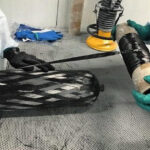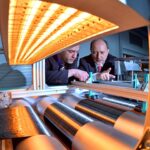During the presentation, Roberto Frassine, EuCIA’s President, will discuss the tool’s objectives and main features and explain how to generate an Eco Report which can be used to support the business case for the selection of a composite product.
Recognising sustainability as a driver for the future use of composite materials, EuCIA developed the Eco Calculator as an aid to composite companies increasingly facing customer requests for detailed information on the environmental impact of their composite product or component. The easy to use tool can be employed to calculate the environmental impact of products from cradle to gate, from the raw materials up to the point of sale. Users do not need any in-depth knowledge of life cycle assessment (LCA) techniques and an Eco Report detailing three fundamental environmental indicators can be generated quickly in pdf format. The data generated can also be used as input for further life cycle calculations.
Event Manager, Rochelle Helliwell is pleased to welcome EuCIA to the event to discuss this free tool in detail, which is available for all to allow the calculation of the environmental footprint related to a product, a process or a service in terms of key impact parameters. “The 2019 edition of Ecocomp has been subject to reconfiguration to allow an audience of OEMs, end-users, composite material manufacturers and suppliers, designers, academics and researchers to get together and gain insight into the full life cycle of composite products from raw materials through to the end of life and recycling, with these stages represented by some fantastic Industry experts.”
NetComposites will be hosting Ecocomp 2019 on 19-20 June 2019 in Coventry, UK, and are pleased to be able to offer participants a number of insightful presentations, exhibition and networking opportunities.
Visit ecocomp-conference.com to register.













